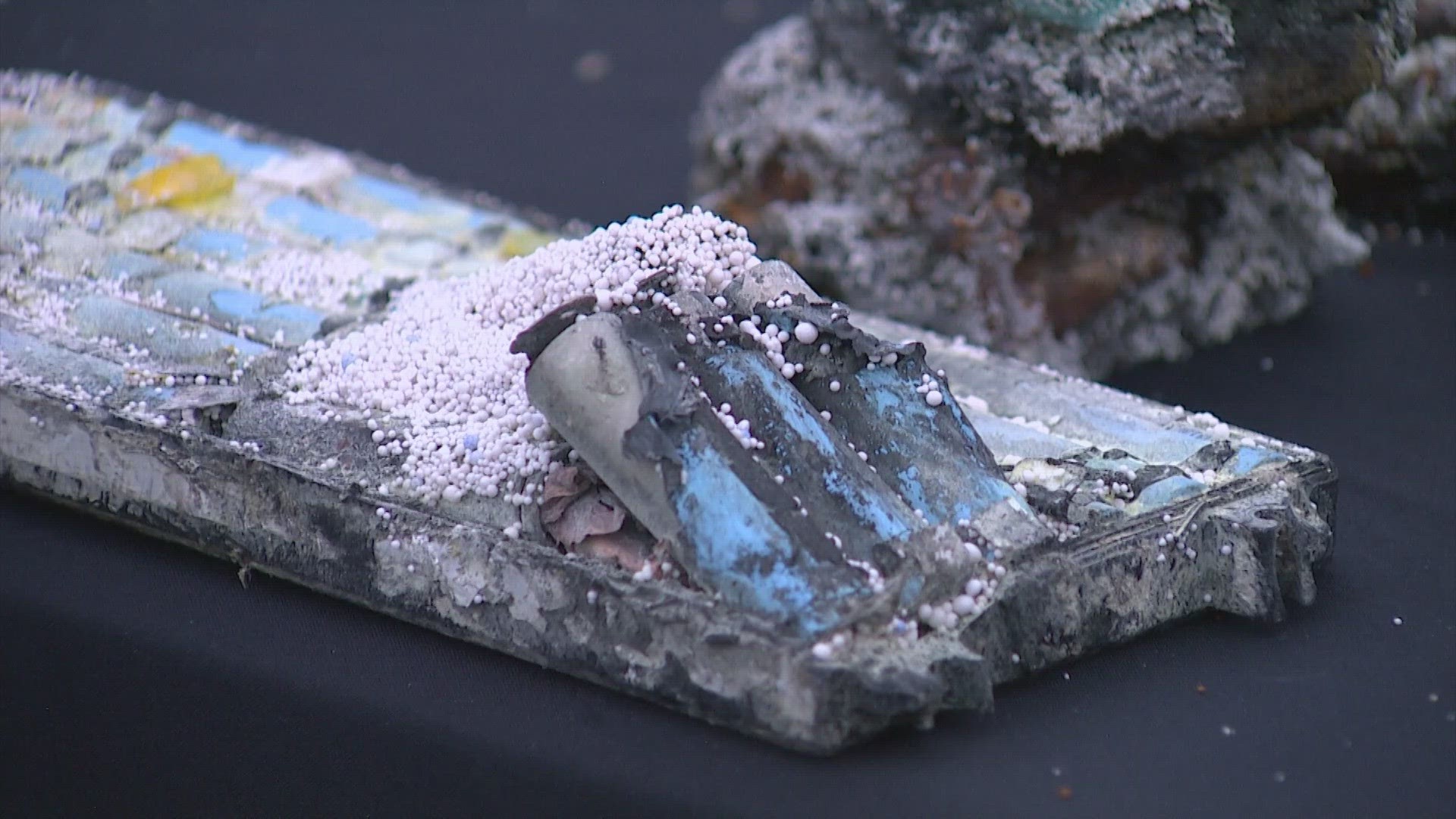SEATTLE — Seattle Public Utilities (SPU) announced Monday that all batteries are banned from the garbage, because of risks to the environment and the public.
The ban, which took effect on Jan. 1, prohibits batteries, items with batteries embedded in them, and electronics such as computers, monitors, and TVs from being disposed of in the garbage. This includes small button cell and alkaline batteries to lithium-ion batteries used in e-bikes and electric vehicles.
If not disposed of properly, SPU said batteries can catch fire and put solid waste collection staff, vehicles, facilities and community members at risk. The Seattle Fire Department has responded to 79 fires involving lithium-ion batteries in the last two years, according to Seattle Fire Chief Harold Scoggins.
"This is a growing fire safety concern across the nation as consumers purchase more items with lithium-ion batteries," Scoggins said. "Fires involving batteries can start and spread quickly, so properly storing, charging, and disposing of batteries becomes key to preventing fires where injuries and property loss could occur.”
SPU said it won't be handing out any fines to customers who don't follow the new rule because workers don't have the time to go through people's trash to hold them accountable,
"There isn't any way for our staff to do that practically and collect all the city's garbage and recycling," said McKenna Morrigan, policy advisory for SPU. "So we're really counting on residents and businesses to do their part."
According to SPU, batteries can pose risks to human health and the environment when disposed of through the solid waste collection system. Mercury, lead, cadmium, lithium and other metals can leak from batteries, and alkaline batters can contain acids hat corrode metals and damage the environment.
“Too often residents are confused about how to dispose of batteries – this new Director’s Rule provides needed clarification to keep communities and our employees safe,” said Mayor Bruce Harrell. “Seattle has long been a leader when it comes to curbside recycling and composting, and this Rule goes further to protect people and the planet.”
SPU said customers can safely dispose of their batteries and electronics in the following ways:
- Free drop off: SPU North or South Transfer Stations, Household Hazardous Waste Management facilities, or partner retail locations
- At home: request a Special Item Pickup ($5 charge, note for multifamily customers, the account holder, such as the property manager, needs to schedule the pickup)
- Electronics disposal free Drop off: SPU North Transfer Station or E-cycle WA locations.
- At home: request a Special Item Pickup ($20 for Special Items box, $30 for TVs larger than 2 ft., note for multifamily customers, the account holder, such as the property manager, needs to schedule the pickup)
“Many electronic products and batteries contain materials that are toxic if disposed of, and they are also highly valuable. These materials can and should be recycled safely into new products,” said SPU General Manager and CEO Andrew Lee. “Reusing and recycling used electronic products and batteries keeps these toxic materials out of our landfills and helps to reduce the negative impacts of producing new products on our air, water, and climate.”
The agency said customers should drop off damaged and defective batteries at a Household Hazardous Waste Management facility free of charge.

